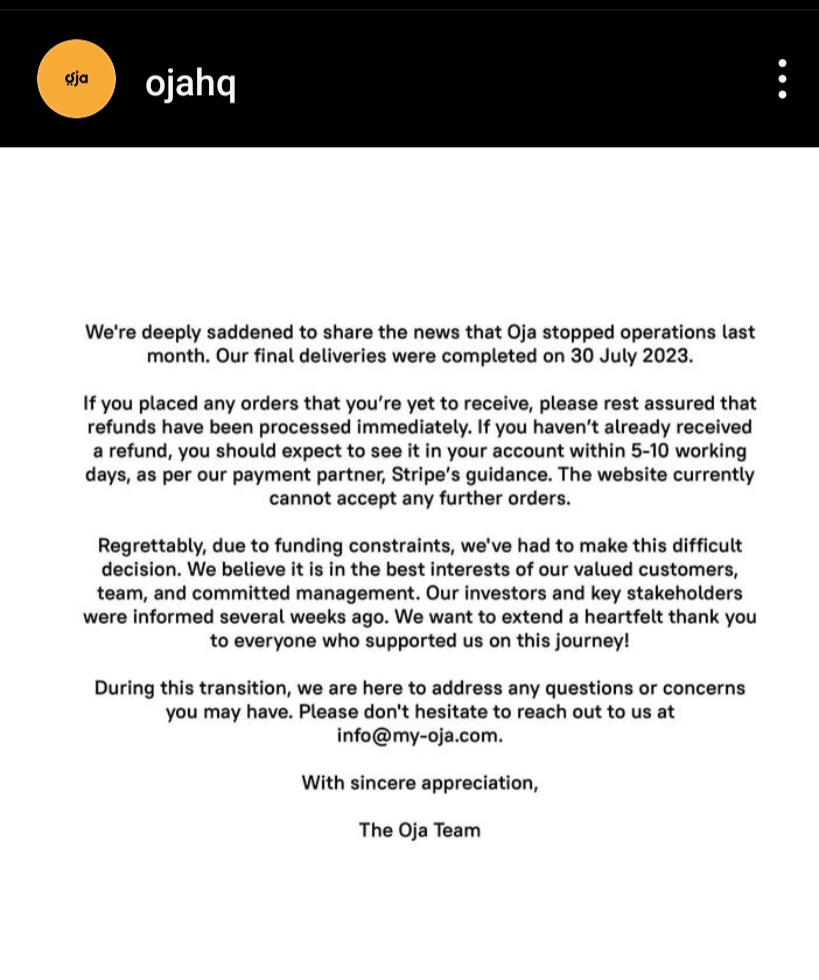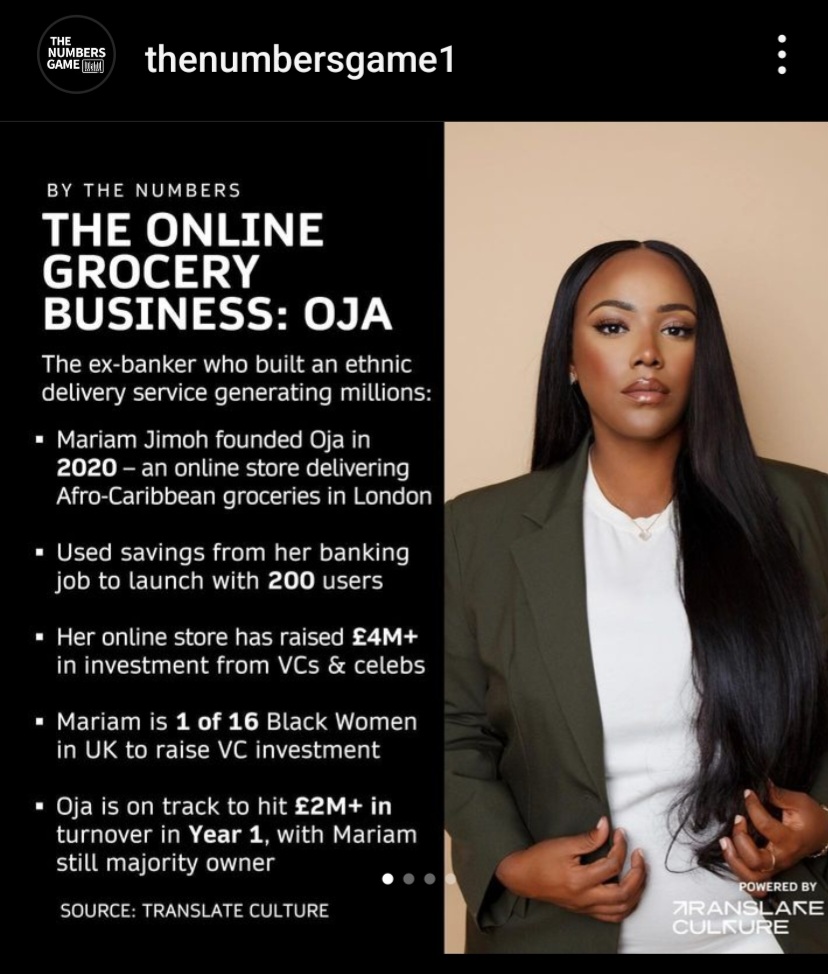
"Wear many hats but design all of them"
- 21 August 2023
- By admin
- 1 Comments
Saying goodbye to Oja: Is 2023 the annus horribilis for Black, female-led businesses?
Can we celebrate Miriam Jimoh, please? Like can we stand up bone straight and applaud her? Loudly.
Earlier this evening, her digital supermarket, Oja, announced that it had fulfilled its last orders in July and ceased trading.

My instant reaction was shock. My second reaction was solidarity. I’m genuinely heartbroken for the brand and its team. Despite their best efforts, “funding constraints” meant its no longer able to continue.
As a fellow business owner, I can’t imagine how this must feel like for Miriam. Started in 2020, Oja soared, scaling to a large-scale warehouse, created a beautifully cohesive brand identity, achieved a 7-figure turnover, and even received celebrity investment from England Footballer Raheem Stirling earlier this year. Things seemed to be going well for the brand.
I think I invested emotionally a little harder in this brand as I remember years ago a potential client had approached me with the very same idea. Tech was nowhere near as advanced as it is now, so to see someone execute the concept was exciting.

For those of you who don’t know what it is, Oja is a digital supermarket that sold produce favoured by the Black Communities. It was like Ocado for cultural foods. A great idea when I think back to my university days in deepest Lancashire where there was only one solitary place I could secure my supermalt, my all-purpose seasoning, and the newspaper The Voice. I can imagine how Oja was a welcome service for many. Especially in more rural areas of the country.
For it to rise and fall within 3 years is a harsh outcome. There are so many factors that could have contributed to its untimely demise: the dwindling effects of support of Black businesses since the events of May 2020. I also wonder whether tech-savvy millennials and Gen Z-ers were really reaching out in the numbers needed to order raw plantain and goat to cook as opposed to contacting the nearest takeaway who could cook and deliver that curry goat for you for a little bit extra. What is undeniable is the continued rising costs. A trip to your local supermarket could see prices increase multiple times within a few days, and these are adjustments being made by longstanding, multiple million corporations. Would Oja’s audiences allow for this flex in the market?
Whatevet the reason, 2023 will be my annus horribilis for Black, female-led businesses. With the closure of the beloved magazine, gal-dem, which I wrote about in April to the ongoing controversy around clothing retailer Grassfields (as broken down by Black women’s magazine, Black Ballad) – it genuinely hurts to watch.
The reality is Black women are least likely to apply and receive funding despite being great business women as we know how to hustle. Miriam is one of the few Black women to receive VC investment in the country.
In some parts of the world, funding for Black female businesses are under attack – I write about this in the Audacity Edition of The Week Unboxed – it’s a test for all of us right now to survive.
As my agency works on building the communications function for a new funding wholesaler committed to racial equity, it’s hard to accept that this is the end of the road for these iconic brands.
Ultimately, I will return to how I started: on my feet, giving Miriam a 20-minute standing ovation for venturing into business, for achieving all she has, for making it as far as she has. Whilst this door may be closed, it is actually something to be proud of. I am of her for sure.
One of my favourite Instagram accounts, The Numbers Game, recently broke down Oja’s achievements recently. Miriam and her team did nothing short of graft.

Congratulations, Miriam, from a fellow sister in the trenches of business. You achieved something special.
Pingback: THE WEEK UNBOXED: Judgement Edition – Juanita Rosenior